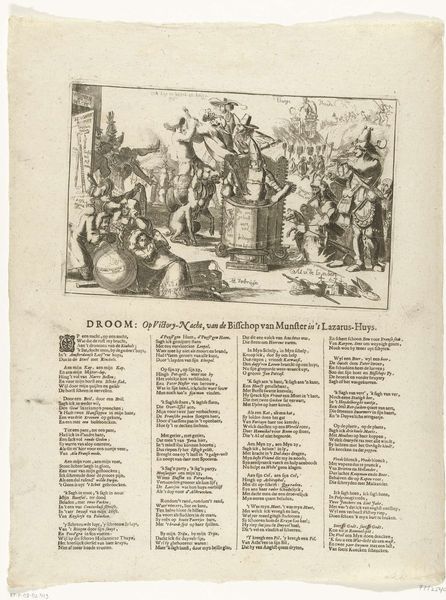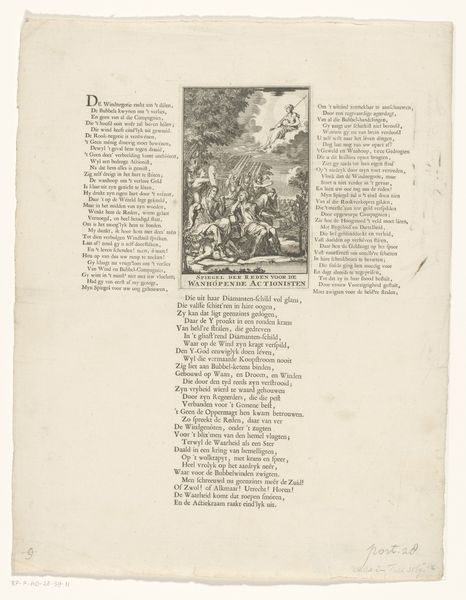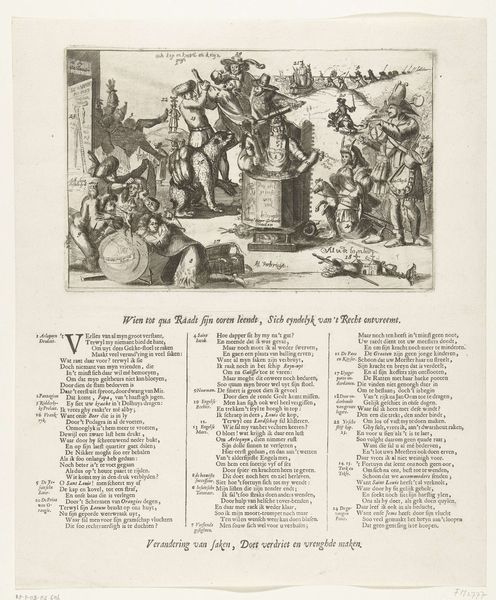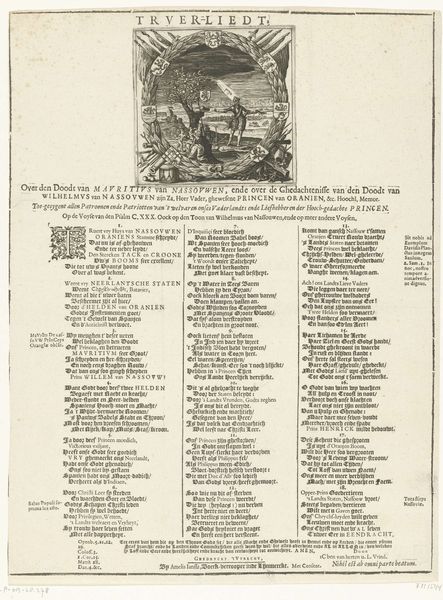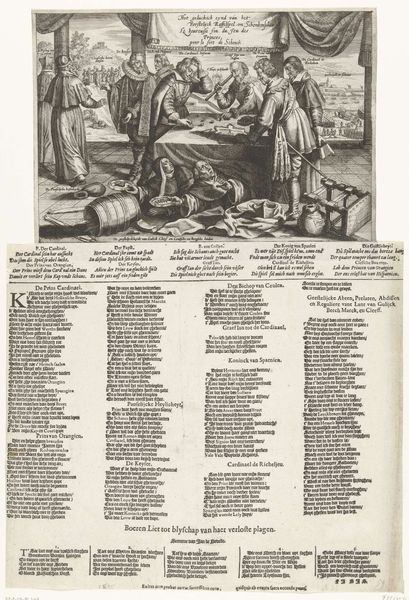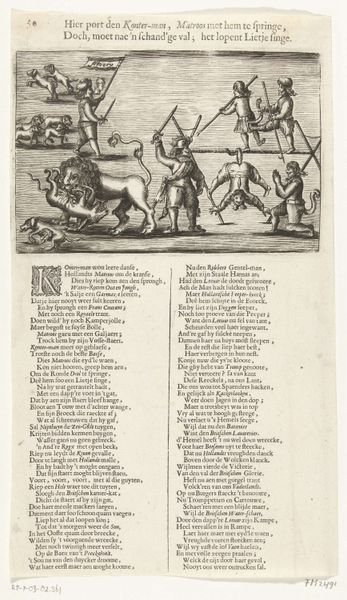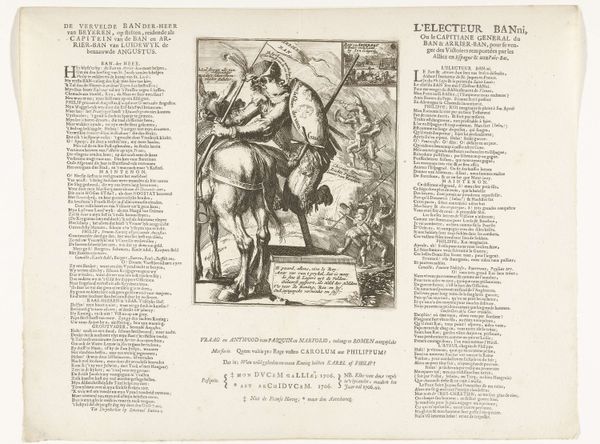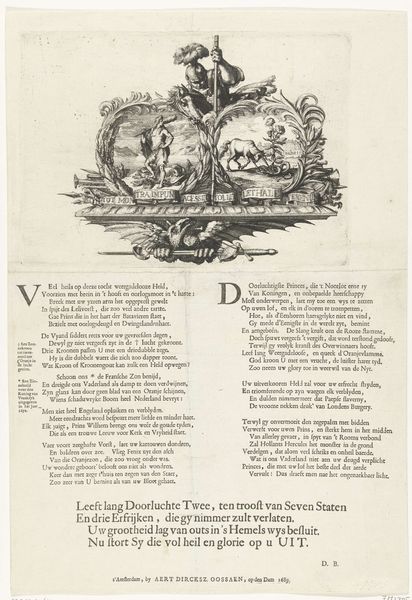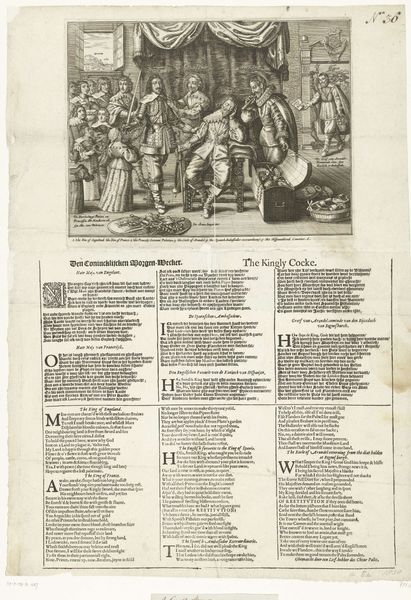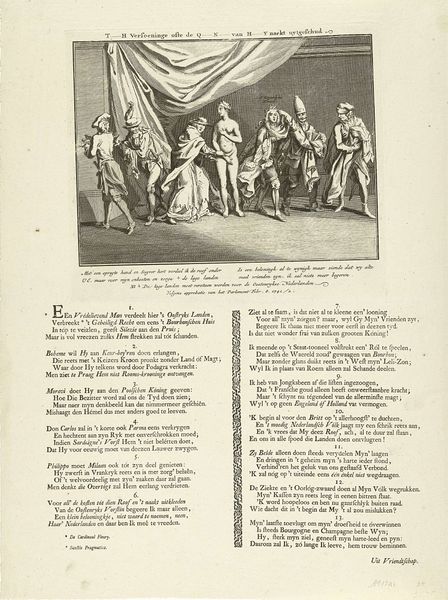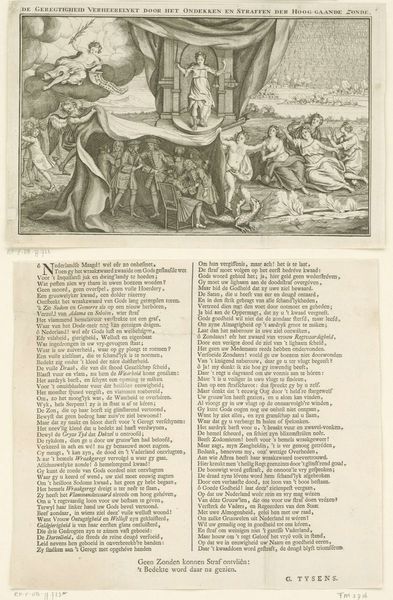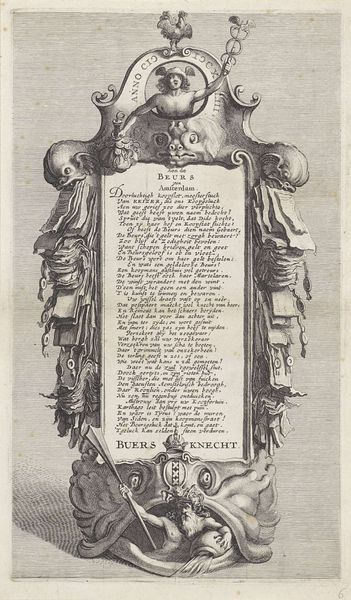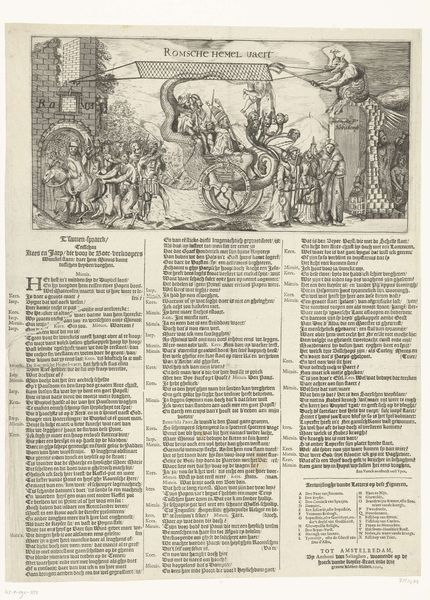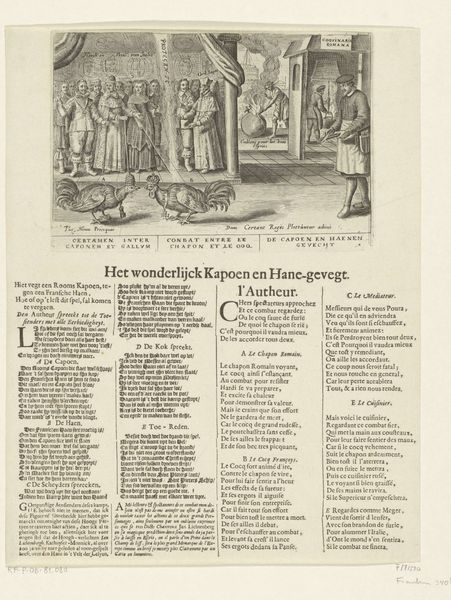
print, textile, paper, engraving
#
baroque
#
dutch-golden-age
# print
#
old engraving style
#
textile
#
paper
#
history-painting
#
engraving
Dimensions: height 383 mm, width 241 mm
Copyright: Rijks Museum: Open Domain
This print by Romeyn de Hooghe from 1702, now at the Rijksmuseum, mourns the death of William III. Note the bare tree looming behind the figures, a potent symbol of loss and the end of life’s flourishing. This barren tree echoes through art history, surfacing in varied forms across cultures. Think of the skeletal trees in Northern Renaissance paintings, or even older, the mythological Tree of the Hesperides. Its presence signifies not just death, but also a deeper, primal fear of mortality. This symbol triggers a deep, subconscious reaction, a collective memory of loss. Here, the mourning figures convey intense grief through dramatic gestures. These gestures, too, have a lineage. Consider the weeping figures from ancient Roman sarcophagi, or the mourning Madonnas of the Italian Renaissance. These emotional displays engage us on a profound, subconscious level. The image’s power lies in its ability to tap into this cycle, reminding us that while forms and rulers change, fundamental human emotions persist through time.
Comments
No comments
Be the first to comment and join the conversation on the ultimate creative platform.
